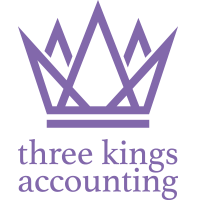The issue of whether to run your business as a company or a sole trader or partnership is an important one. In this factsheet, we summarise the potential tax consequences arising from operating as a company.
Tax savings
The examples below give an indication of the 2025/26 tax cost of incorporation for a sole trader that:
- has no other sources of income
- takes a salary of £5,000 from the company (set at the level of the secondary employer threshold for National Insurance contributions (NICs)) with the balance after corporation tax paid out as a dividend.
| Scenario 1:
Profits £50,000 |
Scenario 2:
Profits £100,000 |
|
| Tax and NI payable: | ||
| As sole trader | £9,732 | £30,689 |
| As company | £11,033 | £34,233 |
| Potential saving/(cost) | (£1,301) | (£3,544) |
Clearly, the extent of the saving/cost is dependent on the precise circumstances of the individual’s tax position and may be more or less than the above figures. Points to bear in mind will be the different treatments of dividends and salaries, the corporation tax rate applicable and whether the individual wishes to extract all profits from the company.
For example, if the salary was increased in Scenario 2 to £12,570 (employer NICs payable but nil employee NICs) and the dividend was reduced to £37,700 such that the individual would only be paying income tax at the basic rate), the tax saving of incorporation is £7,180.
Summary of relevant tax and NIC rates 2025/26
Rate of corporation tax
The main rate of corporation tax is 25% for companies with profits over £250,000. A small profits rate of 19% applies for companies with profits of £50,000 or less. Companies with profits between these limits will pay tax at the main rate reduced by marginal relief, which provides a gradual increase in the effective corporation tax rate.
Taxation of dividends
The cash dividend received is the gross amount potentially subject to tax. The rates of tax on dividend income are 8.75% for basic rate taxpayers, 33.75% for higher rate taxpayers and 39.35% for additional rate taxpayers.
A Dividend Allowance taxes the first £500 of dividends received in a tax year at 0%.
National Insurance
NICs for company directors are calculated on an annualised basis and the rate of employees’ NICs is 8% above £12,570 (for 2025/26). In addition, a 2% charge applies to all earnings over the NIC upper earnings limit (£50,270 for 2025/26). The rate of NICs for the self-employed is 6% on profits above £12,570, and 2% on profits above £50,270.
Employer NICs are calculated at 15% of earnings above £5,000 for 2025/26.
NICs can be reduced to nil by incorporating, taking a small salary up to the threshold at which NICs are payable and then taking additional profits as dividends.
Pension provision
As an employee/director of the company, it should be possible for the company to make pension contributions (subject to limits) to a registered pension fund irrespective of the salary level, provided it is justifiable under the ‘wholly and exclusively’ rule. Pension contributions are deemed to be a private expense for sole traders or partners.
Other tax issues
Capital gains
Incorporating your existing business will involve transferring at least some of your assets (most significantly goodwill) from your sole trade or partnership into your new company. The transfer of goodwill may create a significant capital gain although there is a mechanism for deferring the gain until any later sale of the company if the business is transferred in exchange for shares in the company.
Relief for goodwill
Generally where goodwill is sold to the company for cash or debt on or after 3 December 2014, individuals are prevented from claiming Business Asset Disposal Relief (BADR) and capital gains tax (CGT) arises on the gain.
Property taxes
Depending on where any property is situated there will be Stamp Duty Land Tax (SDLT), Land and Buildings Transaction Tax (LBTT) or Land Transaction Tax (LTT) charges to consider when assets are transferred to a company. Goodwill and debtors do not give rise to a charge, but land and buildings may do so.
Income tax
The precise effects of ceasing business in an unincorporated form including transitional adjustments arising from changes to basis periods, need to be considered.
Capital allowances
Once again the position needs to be carefully considered.
Other advantages
There may be other non-tax advantages of incorporation and these are summarised below.
Limited liability
A company normally provides limited liability. If a shareholder’s shares are fully paid he cannot normally be required to invest any more in the company. However, banks often require personal guarantees from the directors for borrowings. The advantage of limited liability will generally apply in respect of liabilities to other creditors.
Legal continuity
A company will enjoy legal continuity as it is a legal entity in its own right, separate from its owners (the shareholders). It can own property, sue and be sued.
Transfer of ownership
Effective ownership of the business may be more readily transferred, in comparison to a business which is not trading as a limited company.
Borrowing
Normally a bank is able to take extra security by means of a ‘floating charge’ over the assets of the company and this will increase the extent to which monies may be borrowed against the assets of the business.
Credibility
The existence of corporate status is sometimes deemed to add to the credibility or commercial respectability of the business.
Pension schemes
The company could establish an approved pension scheme which may provide greater benefits than self-employed schemes.
Staff incentives
Employees may, with adequate safeguards, be offered an opportunity to acquire an interest in the business, reflecting their position in the company.
Disadvantages
No analysis of the position would be complete without highlighting potential disadvantages.
Administration
The annual compliance requirements for a company in terms of administration and accounting tend to result in costs being higher for a company than for a sole trader or partnership. Annual accounts need to be prepared in a format dictated by the Companies Act and, in certain circumstances, the accounts need to be audited by a registered auditor.
Details of the directors and shareholders are filed on the public register held by the Registrar of Companies.
Privacy
The annual accounts have to be made available on public record – although these can be modified to minimise the information disclosed.
PAYE/benefits
If you do not have any employees at present, you do not have to be concerned with Pay As You Earn (PAYE) and returns of benefits forms (P11Ds). As a company, you will need to complete PAYE records for salary payments and submit details of salary payments on a timely basis under PAYE Real Time Information (RTI). You will also need to keep records of expenses reimbursed to you by the company. Forms P11D may have to be completed.
Dividends
If you will require regular payments from your company, you will need to set up a system to correctly pay dividends.
Transactions with the business owner
A business owner may introduce funds to and withdraw funds from an unincorporated business without tax implications. When a company is involved there may be tax implications on these transactions.
Director’s responsibilities
A company director may be at risk of criminal or civil penalty proceedings e.g. for the late filing of accounts or for breaking the insolvency rules.
How we can help
There may be a number of good reasons for considering use of a company as part of a tax planning strategy. However as you can see there are many factors to consider. We would welcome the opportunity to talk to you about your own specific circumstances. Please do not hesitate to contact us.


